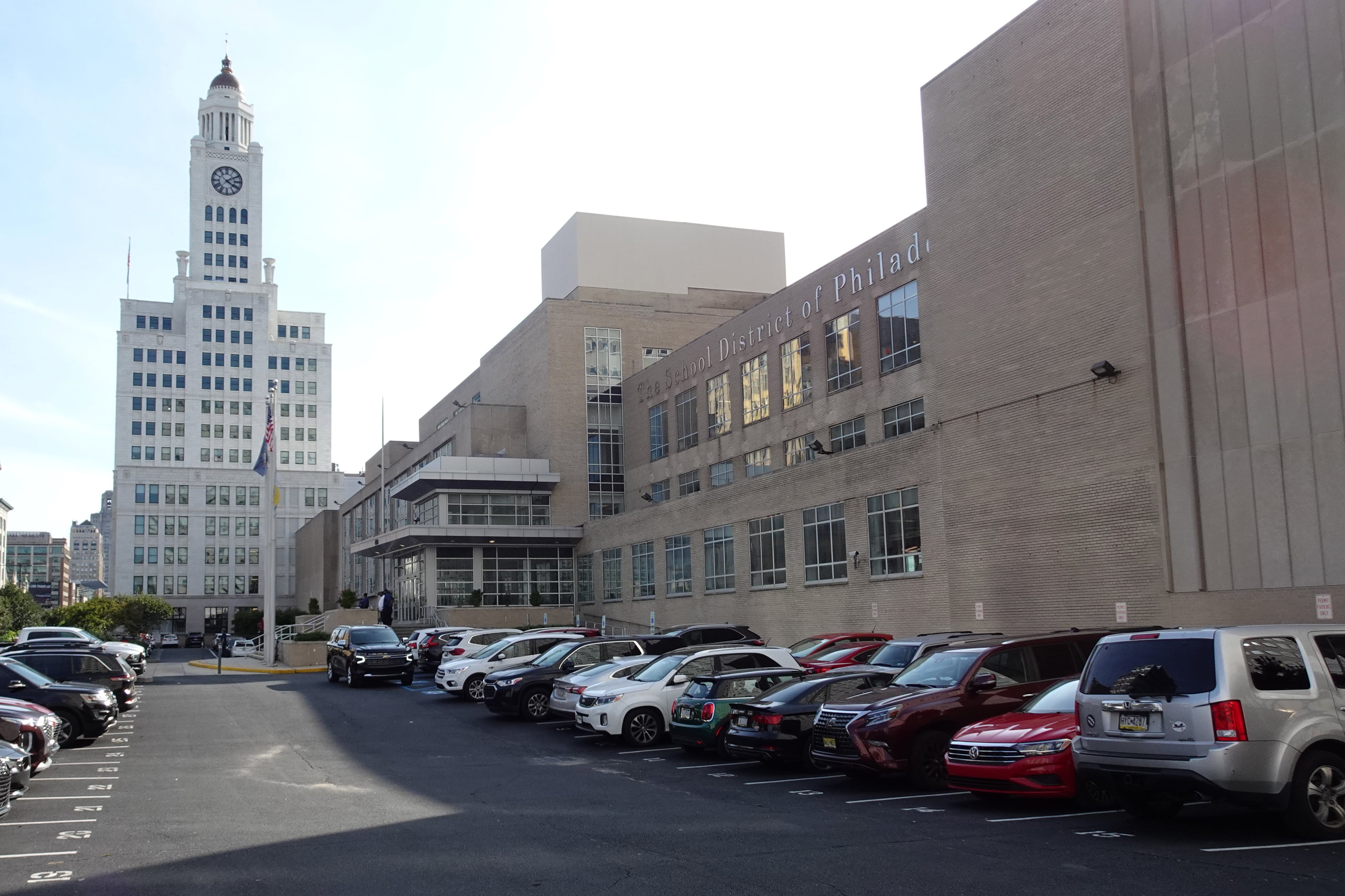Philadelphia Board of Education President Reginald Streater will continue to lead the board for the time being — at least until mayor-elect Cherelle Parker makes her personnel decisions.
Streater and Board Vice President Mallory Fix-Lopez were re-elected to their positions in the board’s annual officer elections Thursday evening. Streater and Fix-Lopez both won with 6-2 votes. Streater and Fix-Lopez were first elected to their roles last year in a significant leadership shift for the board.
Board members Cecelia Thompson and Lisa Salley nominated and voted for each other for the roles of president and vice president respectively. Both members have previously raised concerns about the board’s transparency.
It’s unclear how long Streater and the rest of the board will keep their seats. Their terms expire when outgoing Mayor Jim Kenney leaves office in January. Parker will have the power to appoint all nine members of the board.
A spokesperson for Parker declined to comment Thursday. On the campaign trail, Parker would not say what she plans to do with the board, but told Chalkbeat she “will be looking for people with a deep commitment to our city, the children of our city, and [who] share my vision for public education in this city.”
Rough financial waters ahead for Philadelphia schools
Regardless of who’s on board for the next mayor’s term, they will be confronted with a multi-million dollar budget deficit.
Chief Financial Officer Michael Herbstman gave board members an updated five-year budget outlook for fiscal 2024 through fiscal 2028 that includes additional projections for new union contracts and other costs.
According to Herbstman, just before the pandemic, the district was facing a looming deficit of nearly $300 million due to years of “insufficient funding” from the city and state. Through “effective and efficient use,” of federal pandemic funding, “the district temporarily delayed the inevitable,” Herbstman said. That led to a balanced budget in 2023 and the same projected for 2024.
But with that pandemic aid set to run out, the district is facing a $407 million budget gap for fiscal 2025. And Herbstman said that deficit is likely to grow every year, leading to a $702 million deficit projected for fiscal 2028.
Those projections could change if the state revamps its school funding formula. Earlier this year, a Commonwealth Court judge ordered the state to do so, in order to bring its funding system into constitutional compliance.
The school district has no taxing authority and is 99% dependent on state and city dollars for its operating fund, Herbstman said, meaning “how high we can climb” will depend on state and local officials.
Herbstman said if the state pitches in an additional $357 million and the city adds an additional $144 million in fiscal 2025, the district could make meaningful progress towards adequate school funding over the next five years.
Superintendent Tony Watlington said he and other district officials are trying to signal to state and city policymakers that “we are being good stewards of the public tax dollars,” in the hopes of securing increased funding in this coming year’s appropriations process. Watlington pointed to recent credit ratings reports that he said demonstrate the district is headed in a positive financial direction.
“We’re starting with the best financial investment grade credit rating that we’ve had in nearly a half century. That’s really important,” Watlington told reporters at a Thursday briefing.
The budgeting process will be “more transparent” this year, Watlington promised. He said their plan will involve more parents, students, and community members in the budgeting process through surveys and focus groups from November to March.
Board extends contract for reading services
The board also voted to approve an extension worth roughly $477,600 for the district’s contract with Curriculum Associates for the organization’s PHONICS for Reading instructional materials.
A note on the board’s website said the extension would go towards continuing to provide teachers and students with disabilities in grades 3-8 access to curriculum that’s “been successfully used” since last school year “to significantly improve the reading levels of students” in 77 schools.
Schools across the country have been reckoning with the way they teach students to read, and Philadelphia schools will be getting their own English language arts curriculum overhaul for all students starting next school year.
During the 2022-2023 school year, 2,010 students in 77 district schools had access to Phonics for Reading, according to district data. And those students “on average demonstrated significant improvements in reading fluency and comprehension, with many students moving up a grade level during this year,” the district said in its note
However, results from the most recent state standardized tests show the majority of district students are still not reading on grade level.
Carly Sitrin is the bureau chief for Chalkbeat Philadelphia. Contact Carly at csitrin@chalkbeat.org.






